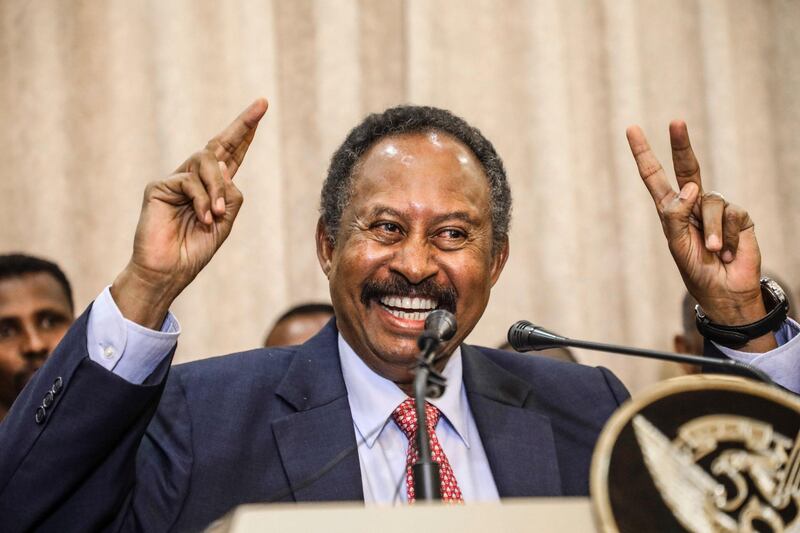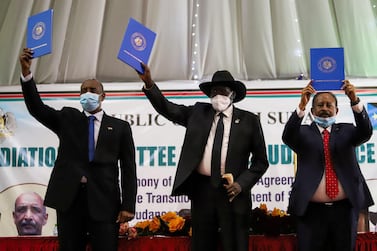On Sunday, Sudan and the US agreed on a long-awaited deal that will open the doors to the global economy to Khartoum. US President Donald Trump has agreed to remove Sudan from the US list of States Sponsors of Terrorism, to which it was added in 1993, in exchange for compensation for the families of the victims of past terror attacks. The de-listing will, in turn, give Sudan access to the international banking system and greater trade opportunities, as well as much-needed debt relief.
In total, Sudan must pay $335 million to victims of terror attacks committed by individuals and groups that Sudan had once hosted.
Under the regime of Omar Al Bashir, who was ousted in April last year by a popular uprising, the Sudanese government had welcomed terrorists including Al Qaeda’s Osama Bin Laden. As a result, extremists who found safe haven in Sudan perpetrated deadly attacks on US embassies in Kenya and Tanzania in 1998, and bombed the USS Cole, a warship, two years later. The money collected will go to victims’ families. Victims of the September 11 attacks have also filed lawsuits against Sudan.
The destructive policies that characterised Al Bashir’s time at the helm of government do not represent the people of Sudan, nor does the new leadership in Khartoum tolerate extremism.
This view was best expressed in a tweet by Sudanese Prime Minister Abdalla Hamdok. "Today, as we approach the disposal of the heaviest legacy of the dictatorial regime, we affirm once again that the Sudanese people are a peace-loving people and have never been supportive of terrorism," he said in reference to the US deal.
Although he is no longer in power, decisions made by Al Bashir and his government nearly 30 years ago continue to haunt Sudan to this day. The Sudanese have endured economic hardship and political instability under his rule.
Too many Sudanese have died or lost loved ones because of the regime. Today, Al Bashir stands accused of genocide, crimes against humanity and war crimes by the International Criminal Court. The charges relate to a 2003 campaign led by Khartoum, during which a revolt in Darfur, Western Sudan, was brutally suppressed, killing 300,000 people.
While the new government cannot undo these tragedies, it is working towards serving justice to those who have been wronged and restoring Sudan’s rightful place as a member of the international community. Last week, a delegation from the ICC arrived in Khartoum to discuss Al Bashir’s case and those of two other former officials wanted for their roles in the Darfur massacres. Al Bashir is now on trial in Khartoum for his 1989 military coup, and has already been sentenced to jail for corruption.
Now that a deal has been reached with the US, Khartoum’s removal from the terror list will allow Sudan to access economic relief, which it desperately needs. The country is struggling with the Covid-19 pandemic and the fallout from severe floods that killed at least 100 people and destroyed the livelihoods of thousands.
The Sudanese have fought long and hard to prove that they reject the extremist legacy of Al Bashir. The US deal is yet another step on the path to a prosperous future and a peaceful political transition for their country.






